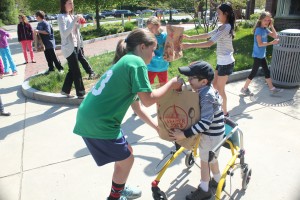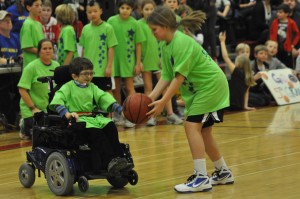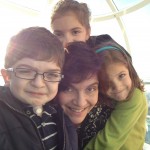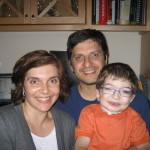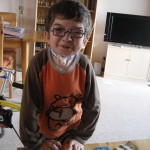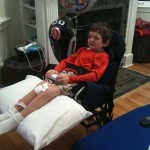Are any of you old enough to remember David Bowie’s song Changes? It was the theme of one high school homecoming dance…I won’t say which year!
There are lots of changes going on. It’s getting towards the end of the school year, but it’s not just the end of any school year. Ben is graduating from 5th grade and heading to the Middle School next year, and Lucy is off to the High School in the fall. I’m glad to say that life is pretty much status quo for Charlotte.
Sprague 5th graders have moved from being regular students to being top dogs of the school. They’ve participated in many empowerment- and leadership-building activities over the past year. This week the 5th graders spearheaded the food drive to ensure that the Wellesley Food Pantry would be well-stocked throughout the summer. At the end of the month they will participate in three, Outward Bound-like days at Hale Reservation, learning how to rock climb, do a ropes course, and learn about ecology–and thanks to great efforts by Sprague teachers and therapists, Ben will participate in all activities.
Earlier in the year, the annual 5th grade vs. the Faculty basketball game took place, with the 5th graders ever so narrowly beating the faculty by one point. What was so amazing, awesome and inspiring about this event was not the close win by the 5th graders, but how so many incredible parents and students came together to ensure that this was a truly inclusive event. Over three Wednesday afternoons, these parent coaches taught ball-handling skills to the students, and worked out certain plays that Ben and his classmates would run during the game. When it came time for the real game, Ben’s classmates– terrific basketball players who could’ve stolen the limelight–willingly passed the ball to Ben, Ben “ran” (wheeled) the ball down the court, and then passed it to another teammate to shoot the basket.
It was a sight to be seen. I missed most of it through my tears. Luckily, it was captured on shaky-cam video.
What a change from Kindergarten, where during recess Ben was instructed by his teachers to take a ball and go find a friend to play with–only for Ben to return to say that he asked someone but they said no (and the teachers would say, “go try again”), to 5th grade, where Ben is a typical, regular, normal presence and is appreciated and respected by his pals.
I didn’t see these changes coming, but so many other people within our community did, and they made all of this happen. I now have only positive thoughts about upcoming changes during the transition to Middle School, but I pray that some changes never happen, such as losing touch with these great friends as everyone grows up.
Ch-ch-ch-changes
Oh, look out you rock ‘n rollers
Pretty soon you’re gonna get a little older
*photos courtesy of Karen Haberly and Jessica Rosenbloom
